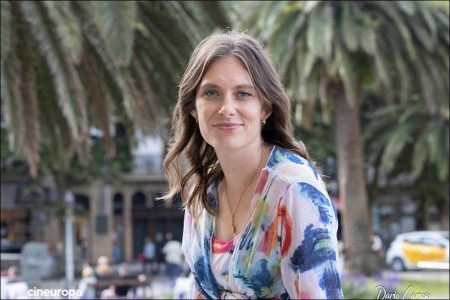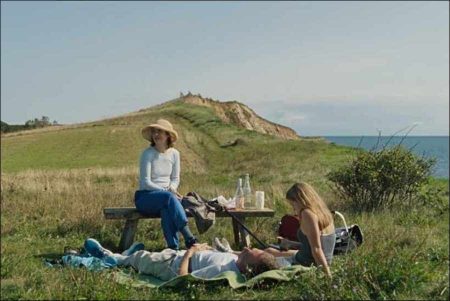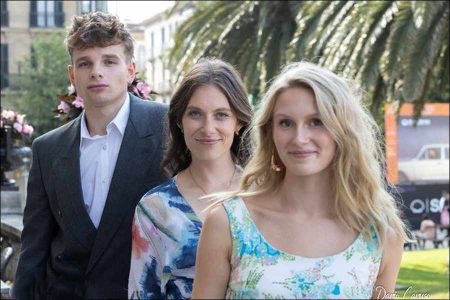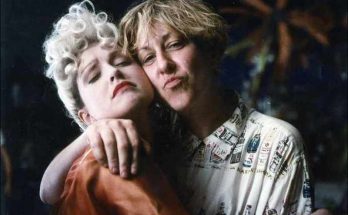My Eternal Summer movie storyline. Fifteen-year-old Fanny and her parents retreat to their summer house, seeking refuge in the familiar rhythms of the season. Days unfold in quiet simplicity-reading on the porch, swimming in the sea, walking along familiar paths, sharing ice creams under the sun.
Amidst these gentle routines, an unspoken grief lingers, the knowledge that this will be her mother’s last summer. The family’s attempts to preserve the past and create new memories are tinged with a delicate melancholy, as they navigate the tension between holding on and letting go, finding in these moments a bittersweet reminder of life’s fragile beauty.
My Eternal Summer (Danish: Min Evige Sommer) is a Danish drama film directed by Sylvia Le Fanu and starring Kaya Toft Loholt, Maria Rossing, Anders Mossling, Jasper Kruse Svabo, Mika Hyllekvist Nielsen, Maja Osmani Winther, Frederik Emil Mathiasen, Lone Rødbroe, Githa Lehrmann and Lea Rønne. The screenplay was written by Mads Lind Knudsen and Sylvia Le Fanu.
Film Review for My Eternal Summer
Presented in the New Directors section of the 72nd San Sebastián International Film Festival, Sylvia Le Fanu’s My Eternal Summer [+] is a film that portrays the moods of a teenager, Fanny (Kaya Toft Loholt), during the last summer spent with both her parents in Denmark. Already from the first images, which show happy children interrupted by a sudden cut that soberly announces the title of the film, we can intuit that My Eternal Summer is a breakup film.
And it is a long ellipsis, given that the ending consists again of a collective scene of joy, as if these same children had become young adults. Between these two poles, there are all of Fanny’s emotions, provoked by the imminent loss of her mother (Marie Rossing) and by her relationship with her father (Anders Mossling), made of tenderness and understanding but constellated by the outbursts of anger typical for a 16-year-old girl, angry at herself and at the world.
Le Fanu’s camera alternates long takes on Danish summer landscapes with close-ups that explore the full range of emotions of the characters, focusing on Fanny’s candour and on the pain that her age brings her. The film highlights the tension between the desire to live channelled in first romantic relationships and in parties with friends, and the burdens of age represented by the first job and, above all, by having to deal with the gradual and slow agony of a loved one.
The latter becomes the central theme of My Eternal Summer, where the adjective ‘eternal’ reveals the indelible impression that a crucial moment in one’s life has on one’s memory, an unforgettable period that must measure itself against the finiteness of things. As if eternity were, paradoxically, reinforced by helplessly witnessing its impossibility.
Like the characters in her film, Le Fanu has to face time, and chooses to show with this slow-paced work the life that carries on together with the life that ends. Rather than focusing on the conflict between generations, My Eternal Summer adopts a philosophical point of view to confront the private yet also universal tragedy that is the loss of a loved one.
Despite its therapeutic side and comforting finale, the film doesn’t spare us scenes that show the unpleasant sides of illness and death. In a touching farewell scene, an edition of The Unbearable Lightness of Being by Milan Kundera stands out amongst the books that Fanny is reading. Italo Calvino said of this book that, hiding being the lightness, the novel describes the “Ineluctable Heaviness of Living”. This opposite and spectacular sentence echoes in the changing face of the protagonist and in her insecurities, so typical of people who are maturing.

Min Evige Sommer
Directed by: Sylvia Le Fanu
Starring: Kaya Toft Loholt, Maria Rossing, Anders Mossling, Jasper Kruse Svabo, Mika Hyllekvist Nielsen, Maja Osmani Winther, Frederik Emil Mathiasen, Lone Rødbroe, Githa Lehrmann, Lea Rønne
Screenplay by: Mads Lind Knudsen, Sylvia Le Fanu
Production Design by: Camilla Silvana Navarro Howalt
Cinematography by: Jan Bastian Muñoz Marthinsen
Film Editing by: Emma Lagrelius
Costume Design by: Rebecca Sophia Morris Sigaard
Art Direction by: Maria Bro
Music by: Patricio Pock-Steen Fraile
MPAA Rating: None.
Distributed by: Reel Pictures (Denmark)
Release Date: September 23, 2024 (Spain). October 12, 2024 (United Kingdom)
Views: 9




